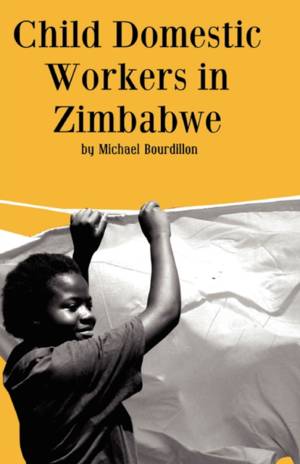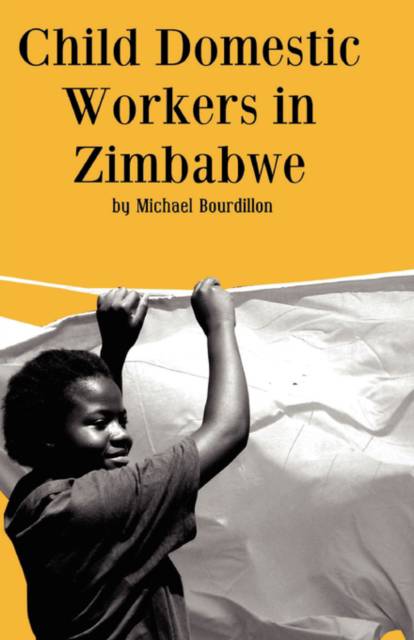
- Afhalen na 1 uur in een winkel met voorraad
- Gratis thuislevering in België vanaf € 30
- Ruim aanbod met 7 miljoen producten
- Afhalen na 1 uur in een winkel met voorraad
- Gratis thuislevering in België vanaf € 30
- Ruim aanbod met 7 miljoen producten
Zoeken
€ 75,45
+ 150 punten
Omschrijving
In the context of AIDS and a declining economy, one strategy for children to ensure their own livelihood is to engage in domestic employment. Here, Michael Bourdillon presents the findings of research based on interviews and discussions with child domestic workers in Zimbabwe. It looks at the circumstances that pushed them into employment, the hardships and humiliations they face therein, as well as the benefits they derive, including, in some cases, education. Most children wanted improvements in their living and working conditions. They did not want to be stopped from working, perceiving that this would worsen their already harsh lives. While child domestic wok is problematic, and often lays children open to various types of abuse, it can also offer critical support and patronage to very disadvantaged children.
Specificaties
Betrokkenen
- Auteur(s):
- Uitgeverij:
Inhoud
- Aantal bladzijden:
- 128
- Taal:
- Engels
Eigenschappen
- Productcode (EAN):
- 9781779220448
- Verschijningsdatum:
- 29/12/2006
- Uitvoering:
- Paperback
- Formaat:
- Trade paperback (VS)
- Afmetingen:
- 140 mm x 216 mm
- Gewicht:
- 172 g

Alleen bij Standaard Boekhandel
+ 150 punten op je klantenkaart van Standaard Boekhandel
Beoordelingen
We publiceren alleen reviews die voldoen aan de voorwaarden voor reviews. Bekijk onze voorwaarden voor reviews.











